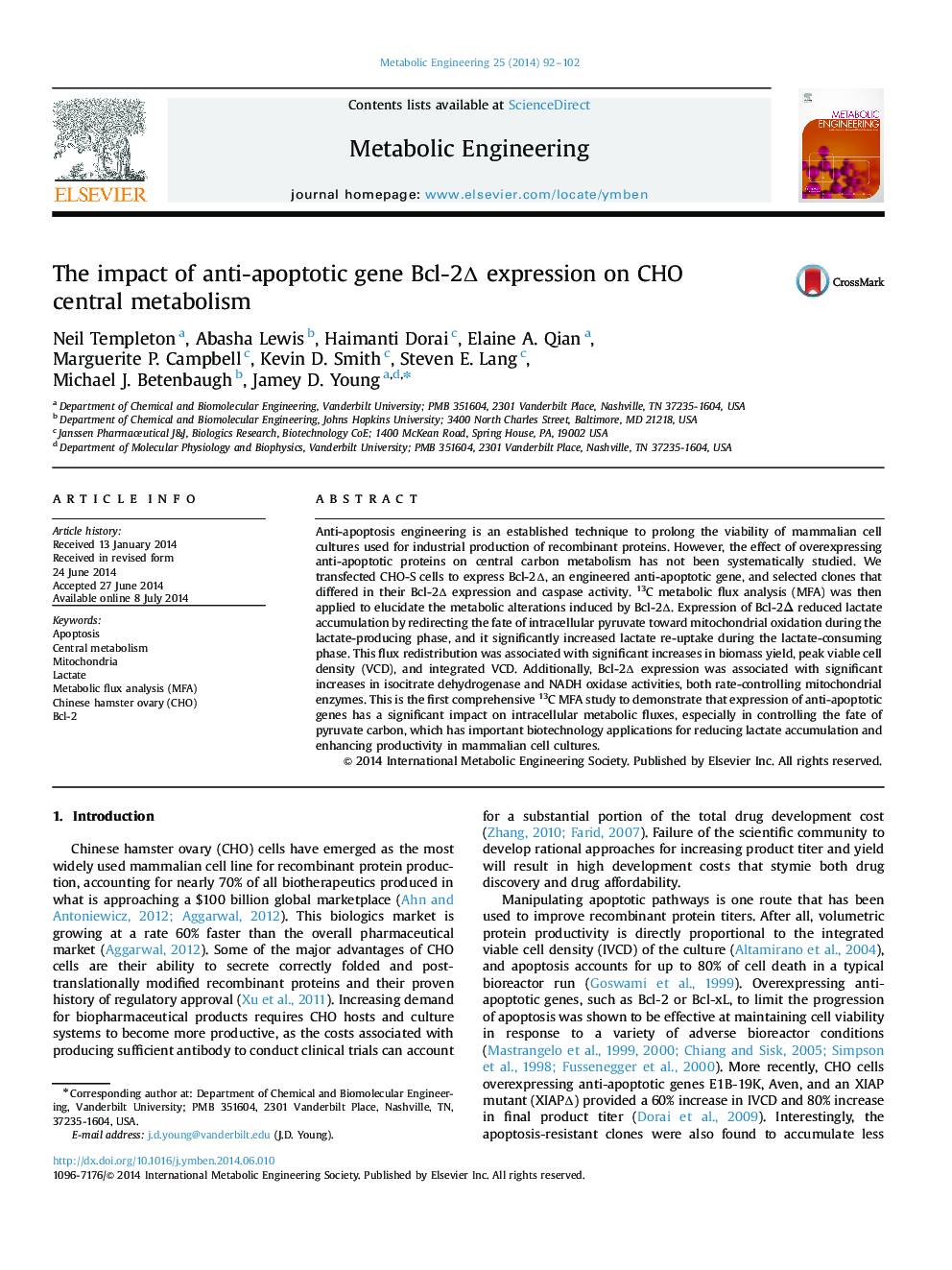| Article ID | Journal | Published Year | Pages | File Type |
|---|---|---|---|---|
| 6494561 | Metabolic Engineering | 2014 | 11 Pages |
Abstract
Anti-apoptosis engineering is an established technique to prolong the viability of mammalian cell cultures used for industrial production of recombinant proteins. However, the effect of overexpressing anti-apoptotic proteins on central carbon metabolism has not been systematically studied. We transfected CHO-S cells to express Bcl-2â, an engineered anti-apoptotic gene, and selected clones that differed in their Bcl-2â expression and caspase activity. 13C metabolic flux analysis (MFA) was then applied to elucidate the metabolic alterations induced by Bcl-2â. Expression of Bcl-2Î reduced lactate accumulation by redirecting the fate of intracellular pyruvate toward mitochondrial oxidation during the lactate-producing phase, and it significantly increased lactate re-uptake during the lactate-consuming phase. This flux redistribution was associated with significant increases in biomass yield, peak viable cell density (VCD), and integrated VCD. Additionally, Bcl-2â expression was associated with significant increases in isocitrate dehydrogenase and NADH oxidase activities, both rate-controlling mitochondrial enzymes. This is the first comprehensive 13C MFA study to demonstrate that expression of anti-apoptotic genes has a significant impact on intracellular metabolic fluxes, especially in controlling the fate of pyruvate carbon, which has important biotechnology applications for reducing lactate accumulation and enhancing productivity in mammalian cell cultures.
Related Topics
Physical Sciences and Engineering
Chemical Engineering
Bioengineering
Authors
Neil Templeton, Abasha Lewis, Haimanti Dorai, Elaine A. Qian, Marguerite P. Campbell, Kevin D. Smith, Steven E. Lang, Michael J. Betenbaugh, Jamey D. Young,
